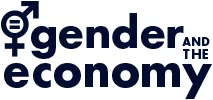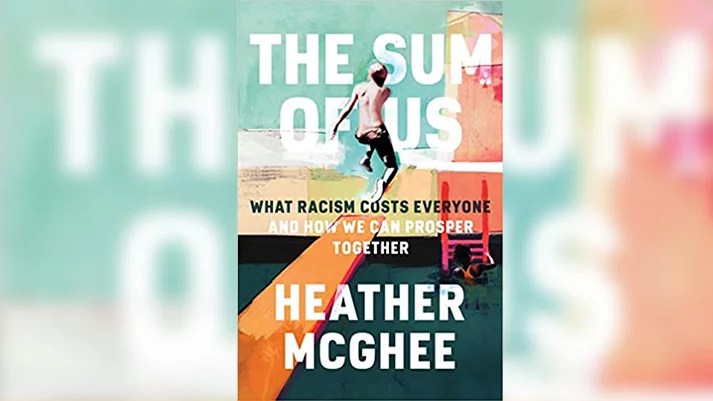Heather McGhee’s book, The Sum of Us, explores the self-destructive bargain of white supremacy and its rising cost to all of us—including white people. In The Sum of Us, McGhee embarks on a deeply personal journey across the country from Mississippi to Maine, tallying up what we lose when we buy into the zero-sum paradigm–the idea that progress for some of us must come at the expense of others. In April, she joined Sarah Kaplan of the Institute for Gender and Economy for a discussion on these ideas, where they come from, and what we can do moving forward.
One of the best ways to represent McGhee’s central idea is the story of the “drained public pool”. In the 1930s and 40s in America there was a boom in public amenities such as schools and libraries, as well as large public pools. These came about from a new ethos that government should create a higher standard of living. Towns then began excluding Black people from pools and other public amenities, either through law or intimidation. When Black families protested, towns drained public pools rather than integrate them, leading to private or membership-only pools. They destroyed a public good to maintain white status, an attitude in the American economy which has led to the era of inequality we currently see. For example, higher education used to be virtually free until public colleges started to become more diverse. Then anti-government spending ideas began to take hold and everyone is losing out.
What is the narrative of the zero-sum game in racial equality, and where did it come from?
This misconception is that if something is good for people of colour, it will not be good for white people. This is untrue and racial inequality is costing America’s entire economy. Racism is often profitable for some (e.g. the prison-industrial complex), but at immense costs for broader society. It results in loss of productive wealth and harms communities, especially for people of colour.
Historically, America’s original economic policies did mean that profits for white people came entirely at the expense of people of colour. There was a narrow white elite that used the notion of racial hierarchy to create division that ensured white people’s loyalty to them and not to people of colour. This is an idea that has renewed itself in today’s media and political landscape.
If there are so many costs to racial inequality, why aren’t business leaders doing more to stop it?
Many people are often not talking about the overall economy when they don’t support changing inequality. They are talking about the current distribution of power, including their own status relative to others. The existing scarcity model makes people think they need status, but they mistake status with security. If there was more equality, everyone would have security and be able to access things like education and healthcare that are currently inaccessible for many.
How can we think about moving forward?
McGhee puts forth two ideas to move forward with: 1) The solidarity dividend is the idea of rejecting the zero-sum game narrative and making gains through collective action across racial lines. 2) Truth, Racial Healing and Transformation is a community-based framework to transform society so that it is not based on a hierarchy of human value and ensures that people across the country have racial literacy.




